Pat Rowles is a British musician, songwriter and producer with various credits over the past forty years. Under the name Genius Steals, this year he has come up with the album ‘Nobody Knows Anything’, which feels like the fruition of his musical and life experience to date. In an exclusive interview, Pat outlines his early musical background in the post-punk era and later experiences as both a band member (e.g. No Corridor, Dead Man’s Curve) and session player, notably with Adrian Borland. He also details the process of making ‘Nobody Knows Anything’. Pennyblackmusic: What was the first music you loved? At what point did being a music fan change to wanting to play yourself? Pat Rowles: Petula Clark! It was the 1960s and my dad had lots of her LPs, full of great, hook-filled songs written by Tony Hatch and Jackie Trent (among others), with big band arrangements. There were other, odd things, like greatest hits albums by The Shadows, Glenn Miller and His Orchestra, and various classical pieces. I also remember him bringing home The Beatles’ ‘Twist and Shout’ EP when I was about three, and me not liking it much. I’ve never really understood all the fuss about The Beatles. I have a brother two years older than me, and he introduced me to stuff like Pink Floyd and Deep Purple in my early teens. The first time I wanted to pick up a guitar was at the age of twelve, when I heard the opening chords of T Rex’s ‘Twentieth Century Boy’ and thought, “I want to make that noise one day!” PB: Your first recorded band was No Corridor. How did you form, and what kind of music did you play? PR: Guitarist Ed Dudzik and I met at Cardiff Uni. He’d already been in bands, while I took up bass at nineteen (I was determined to play left-handed, and couldn’t play chords on my friends’ guitars!) Our drummer, Bo (who died tragically early in 2017), was at Cardiff Art College and answered an ad I put up in a record shop for a drummer into The Cure, Teardrop Explodes, the Bunnymen and Wah! Heat. The three of us started rehearsing in late 1983, and within three months we were gigging. There was a big overlap in all our musical tastes: I loved post-punk/New Wave, but with a pop sensibility; Ed was more into bands with spikier guitars, like The Gang of Four and Bauhaus; Bo was the ultimate magpie, into the stuff we were but also loving club music (house and hip-hop were taking off around then), and synth bands from Kraftwerk to Tangerine Dream and beyond. I was trying to steal from all the groups I loved (Joy Division, The Sound, Chameleons, and Comsat Angels were other favourites). I loved The Police before I got into more obscure stuff, as much for the fact that Sting showed that you could be a singing bass player as for their music. Where bassists were concerned, I was listening and practicing along to Julian Cope on ‘Kilimanjaro’; Bruce Foxton on ‘All Mod Cons’; Michael Dempsey on ‘Three Imaginary Boys’; Les Pattinson on ‘Heaven Up Here’; and (hugely underrated, in my book) Carl Washington on the first Wah! Heat album. And, of course, Peter Hook, from whom I copied the technique of using open drone strings a lot. I went off his playing when New Order’s use of sequencers allowed him to switch to what I’d call ‘noodling’. I have a joke answer for a questionnaire in ‘Bass Player’ magazine. “Favourite bassist: Peter Hook, Joy Division. Least favourite bassist: Peter Hook, New Order.” PB: What other bands have you played with? Were they purely for gigs or did you make records with them too? PR: There’ve been a few others. I played bass and sang in Shrimp Tractor, a band formed by former Flatmates guitarist Martin Whitehead, and we released two singles in the early Nineties. I was also in a five-piece surf instrumentals group for several years in the late Nineties, called Dead Man’s Curve, as a result of my longstanding friendships with two former members of London indie pop band The Ogdens. We had a lot of fun and made two well-received (within the genre) albums; I think my early exposure to The Shadows came in handy! And, of course, my involvement with Adrian Borland (The Sound). PB: To some people you’re best-known as a regular sideman to Adrian Borland during his post-Sound solo career. How did that connection come about? For you, was he as difficult to work with as others have said? PR: I was a fan straight from buying ‘Jeopardy’, and from seeing them on ‘Whistle Test’ in 1981. I first spoke to Adrian backstage at one of The Sound’s last ever gigs at The Marquee on Wardour Street, in 1986 or ‘87. We next met a few years later when he played at Camden Dingwalls with The Citizens, promoting the ‘Alexandria’ album. He said, “Oh yeah, you’re the bloke who loves ‘Fall of Europe!’” I didn’t have a clue what he was on about [it’s a B-side to the ‘Iron Years’ single, I found out later], but I was flattered to be remembered at all, and just played along! We kept bumping into each other at various London venues after that, and in 1994 a mutual friend put us in touch when Adrian was looking for a bass player for a one-off gig. That led to me playing on two songs on ‘Cinematic’, another gig, and then most of ‘5:00 AM’. We got along fine for the most part. I like to think I’m fairly agreeable when I believe in a project, and Adrian usually had definite ideas about what he wanted. That manifested itself more in terms of what he asked me not to play, rather than dictating what I did: it was sometimes a case of, “No, not that – try something else,” until I came up with something he liked, and it’d be, “Yeah, that’s it – play that!” I did lose patience with him during a short tour of Holland, Belgium and Germany in 1997, though. A lot of people wanted to hang out with him after the gigs because they remembered The Sound and loved his solo stuff. I think he’d missed that recognition, and being on the road, and. while the rest of the band were crashing out at 2 a.m., Ade was still up partying at five or six o’clock! That made him a grumpy, uncooperative pain in the arse when we had to get our act together at 10 a.m. for a long drive to the next gig the following day, and by the tour’s end I couldn’t see myself working with him again. Time’s, however, a great healer, and about a year later he got in touch and I visited him at a studio where he was recording some demos. I was knocked out by the new songs, and offered to finance an album. The recording process started out really well, but I was due to begin a new job shortly after and went on holiday when I’d finished my bass parts. I’d expected to come back and find the album nearing completion, but instead I got the devastating news that Adrian had killed himself. Nobody close to Adrian has ever blamed me (I stayed in touch with Bob, Adrian’s father, and he once said he’d felt for a long time that it was a case of when Ade would kill himself, rather than if), but I’ll always wonder whether I should have made it possible for him to make an album at that time and, having done so, whether staying around to support him while he finished it would have made a difference. I still miss him. At his best, he had this natural self-confidence and urbane self-possession which, along with the way he looked and spoke, reminded me of Christopher Hitchens. There’s no getting away from the fact that he’d let himself go towards the end of his life, but as a friend of mine pointed out, he had this ‘fat Elvis’ quality whereby he was still really cool, especially on stage. PB: You were closely involved in Borland’s posthumous album ‘Harmony and Destruction’. It’s a great record, but did you feel any misgivings about the responsibility of bringing such a personal work to completion? PR: Thanks, it always means a lot to me when people say they appreciate that album. It was difficult, as some people associated with the record wanted the songs either to come out in the state in which Ade had left them or not released at all, and I was accused of trying to cash in on my connection with Adrian. Two years had, however, passed since his death, and I thought it was bad enough him no longer being around without some of his best songs also never seeing the light of day. I didn’t feel some of them did him justice as they stood (a few had only very sketchy guide vocals) and believed the album could be released in a way that was respectful of Adrian’s intentions and didn’t short-change his fans. I had his parents’ blessing and took the raw tracks to the studio Adrian had demo’ed in, where the producer/engineer (Pete Barraclough, formerly of The Lucy Show, who did a terrific job) had known him pretty well. As the liner notes point out, we were able to use things Ade had said and written with regard to production ideas, and also mix in his own MIDI keyboard programming, along with vocals from four-track demos we’d recorded prior to going into the studio. You can question your own motives endlessly, but I hope I did it for the right reasons. PB: How would you compare the levels of satisfaction you get from leading a band project such as your new album as Genius Steals with being a session player? PR: I’m a hopeless leader. Part of that is down to how I feel about what happened as a result of me facilitating ‘Harmony and Destruction’, but I also have a natural tendency towards aimlessness which seems to have got worse as I’ve got older. That said, I’m a great follower when I believe in the leadership, and I think there are some projects to which I’ve contributed a great deal because the pressure of responsibility for their success or failure didn’t ultimately rest on my shoulders, so I’ve felt free to put my best ideas forward. It’s far easier to deal with your own hurt feelings than those of others, and I’ve long since lost the desire or confidence to be in charge, if I ever had it in the first place. Among the things which made the Genius Steals project so rewarding were (a) that neither lead guitarist Rob Ball nor bassist Russ Cooze have any ego problems, and (b) they’re such good and experienced musicians that they instinctively knew what the songs needed, so required practically zero direction from me. PB: You’ve acknowledged that ‘Nobody Knows Anything’ took several years to write and record. Was this due to perfectionism, or were other factors involved? PR: A bit of both. Inertia is always a problem for me. It was basically a vanity project, in so far as I’d written what I thought was a set of really good songs. While I didn’t have the motivation to form a proper band to go out gigging, I still wanted them to be heard. Having got other people involved, I had to tackle the long, painful process of learning how to use a DAW [Digital Audio Workstation] properly, how to record other people, how to use effects, and how to program drums that sounded like a drummer. Once I’d decided to hand bass duties to someone else (and I’m eternally grateful to Russ for saying yes!), there were the logistics of how to record him. That took two trips with the software and a break-out box to Chippenham, where he lives, and they were eighteen months apart! Rob lives quite near me in Southwest London, but we still had scheduling issues from time to time. There was also my divorce, and a couple of changes of job in there somewhere. Once all the tracking was done, I spent months producing mixes I didn’t like, and wondering why they didn’t sound as good as my favourite records. It dawned on me eventually that, aside from inferior equipment, inferior methods, and inferior talent (on my part!), I hadn’t ‘done the work’: I’m still learning all the time, but after hours of listening to stuff, watching tutorials on YouTube, and trial and error, I’m much better at working out what I don’t like about something and then fixing it. PB: ‘Nobody Knows Anything’ is a pretty blunt statement. Is that a true reflection of your feelings? PR: It’s not meant to imply that I think people are innately stupid. The album’s title is taken from William Goldman’s book about working in Hollywood, ‘Adventures in the Screen Trade’, based on his observation that in the movie business no one knows what’s going to be a hit. I never stop being amazed at how clueless and lacking in judgment we can be as a species, though: projects like the new Wembley stadium or HS2 going over budget by orders of magnitude, or years over schedule. Political decisions often strike me as being like someone looking at a wobbly table and going, “I see what the problem is – we need to saw a bit off the bottom of that leg”, after which it wobbles the other way; and then someone else comes along and goes, “No, you idiot – you should have sawed a bit off the bottom of the other leg,” and it turns out that doesn’t help either! I’m a great believer in ‘cock-up over conspiracy’: if you delve into the background of tragedies like the capsizing of the Herald of Free Enterprise ferry, or the Grenfell Tower fire, they were the result of seemingly impossible combinations of coincidence, bad luck and poor decisions, rather than malicious intent. The image on the album’s back cover shows a B-52 bomber about to crash on the eve of a USAF air show in 1994, following a series of actions and decisions which beggars belief. PB: Lyrically, there is a lot of rueful reflections on your faults. What drives this? Is it a need you feel to take stock in middle age? PR: No, I’ve always done it! Many years ago, a friend and I were waxing philosophical and he said, “You know, Pat, you’re very hard on yourself,” to which I immediately retorted, “No, I’m not!”. I mean, talk about convicted out of one’s own mouth! People’s flaws and failings are usually more interesting than their virtues, and we’re fascinated by the darker side of human nature. It could be a need to confess one’s sins, for validation and reassurance that we aren’t alone in having negative attitudes and emotions which make us uncomfortable. I think there’s also that element of getting the criticism in first, before anyone else can; that thing of, “I can say worse things about myself than you ever could!” I’ve thought, said and done some terrible things over the years, but people have been kind enough to make allowances. Paradoxically, I’m not always as forgiving as I could be. PB: You have a variety of musicians and singers contributing to the album. How did you get them involved? PR: They were all people I already knew, apart from Sarah Eliza, who is Rob’s daughter. Rob and I had known each other casually for a while. I liked his playing and he liked my songs, so eventually I plucked up the courage to ask him to collaborate. I hadn’t realised just how good and how versatile he was, but it became obvious once we got started. He provides backing vocals (he’s actually a better singer than me!), and also has really good arrangement ideas: he came up with the “woah-oh, woah-oh, woah-oh” vocal part on ‘That Wile E Coyote Moment’. Russ and I have been friends since we were at college. He was a big influence with regard to me taking up the bass, and he knows rock music inside out. I have a tendency to overplay, and his approach to some of the songs (particularly ‘Get Over Yourself’ and ‘Gutless’) would never have occurred to me, but turned out to be exactly what they needed. Sarah Eliza has a great voice, and really added to the songs she’s on, especially ‘Unmanned’. John [harmonica] is an old friend and another ex-Ogden; Tim plays trumpet and guitar in the surf band, Los Fantasticos, with Django Deadman from Dead Man’s Curve; Sheila is yet another old friend, who willingly hauled her cello all the way from Surbiton to Streatham, and got all the parts on ‘Kids of Your Own’ pretty much first take; and Jasper is my fifteen-year-old son, who couldn’t resist the prospect of an album credit! Ed I’ve already mentioned in connection with No Corridor, and his experience in the studio and as a live sound engineer was an absolute Godsend where the production and mixing were concerned. I’m enormously grateful to them all. PB: Your combination of somewhat acerbic lyrics and often catchy pop-rock evokes artists like Elvis Costello, Squeeze and The Pretenders, as well as Adrian Borland. Are you conscious of any of them as influences or would you cite very different artists? PR: Tough one. The first lyrics that ever caught my attention were Don McLean’s songs, ‘Vincent’ and ‘American Pie’, when I was ten or eleven. Elvis Costello was an early influence on my first attempts at songwriting, but eventually I realised that, while I loved his wordplay, half the time I didn’t have a clue what he was on about. I’m a great admirer of Chrissie Hynde and the Difford/Tilbrook writing partnership, but neither Squeeze nor The Pretenders are bands I’ve actively listened to. I think Adrian Borland’s lyrics got even better as he got older, although that perception might have come from getting to know him as we worked together. I really admire Lloyd Cole and Roddy Frame, but Paddy McAloon of Prefab Sprout is probably my favourite lyricist from my own generation. I get a sense of real humanity and spirituality from songs such as ‘Nightingales’, ‘I Remember That’, ‘One of The Broken’ and ‘Doo-Wop in Harlem’. John K. Samson from Canadian band The Weakerthans is another hero of mine, for his economy and turns of phrase. From yesteryear, I’d namecheck Hal David, who had Paddy McAloon’s knack of expressing something in a way that was beautifully simple without being simplistic, and Jimmy Webb, for the wonderfully evocative quality of songs like ‘Galveston’, ‘Wichita Lineman’ and ‘By the Time I Get to Phoenix’. I’ve been trying for years to pluck up the courage to cover ‘Where’s The Playground, Susie?’ but Glenn Campbell’s version makes that seem a bit daunting! PB: Do you hope to make your next album more quickly? Is having no record label to placate a problem, in so far as you can keep tinkering in search of perfection? PR: I’ve got a follow-up mostly written (and I’ve made a start on recording), but the older I get, the harder it seems to be to finish stuff. I need two or three more songs before I’ve enough to release the album, and they’ll come from a bunch of six or seven currently in various stages of completion, but ideas that feel worth pursuing get harder and harder to come by. I’m increasingly preoccupied with the question, what are songs for? Lyrics remain the hardest part. Peter Gabriel said, “There are loads of great songs with terrible lyrics, but none with terrible music,” but for me the best songs have great words and great tunes. There’s inevitably a certain amount of ‘filling in the blanks’, whereby you start out with the first verse and half a chorus, and need to find the rest of the words from somewhere, but I’ll leave something to one side for months, years sometimes, until the moment of inspiration hits and the line or rhyme I’ve been looking for suddenly comes to me. I’ve probably completed fewer than a hundred songs in about forty years, but I like to think I’ve set myself a high standard, and nothing makes me happier than someone telling me they think my lyrics are good. Where the perfectionism in the recording process is concerned, I’m trying to be a little less exacting and self-critical. It also helps that I’m much better at it than I was when I embarked upon ‘Nobody Knows Anything’. I’ve realised most people would never notice a tiny imperfection that drives me mad. PB: Are there any gigs lined up to promote ‘Nobody Knows Anything’, or do you have other musical plans for the immediate future? PR: No, no gigs planned. I made a half-hearted attempt to get a band together a few years ago, but the logistics made it too daunting. Covid seems to have accelerated the decline of the live scene over the last couple of years, particularly smaller gigs, and even friends who are really keen to gig are struggling to find worthwhile opportunities. Rob and I used to play gigs as an acoustic duo, mostly by invitation, and may well do so again as we make progress on the next album. Or, I might kick myself up the arse and have another go at getting an ’electric’ band together. Who knows? Never say never! PB: Thank you.
Band Links:-
https://geniussteals.bandcamp.com/Play in YouTube:-
Picture Gallery:-
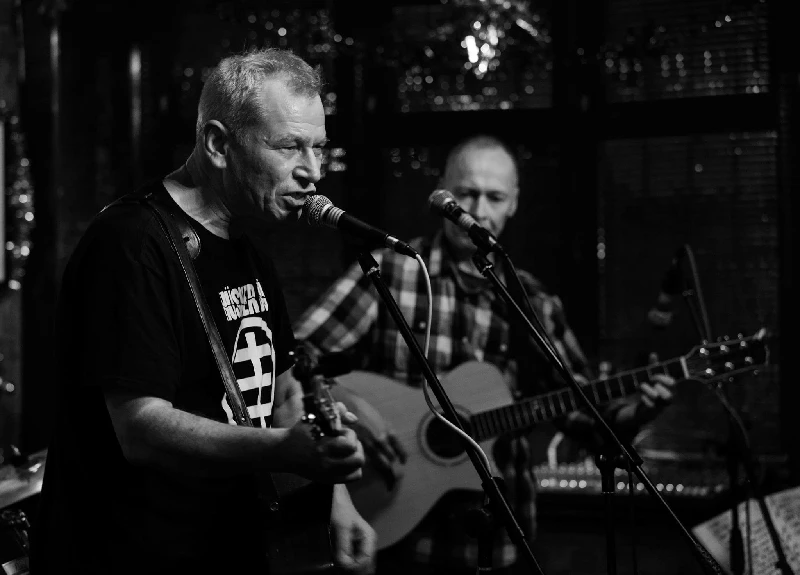
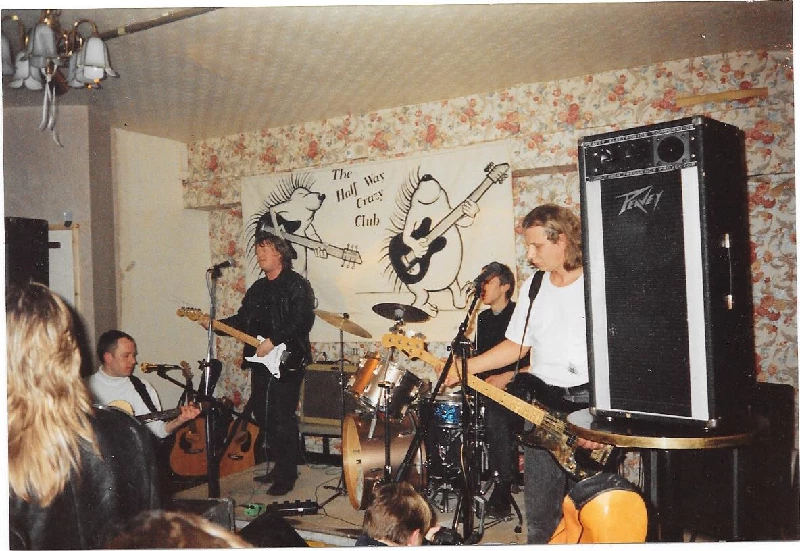
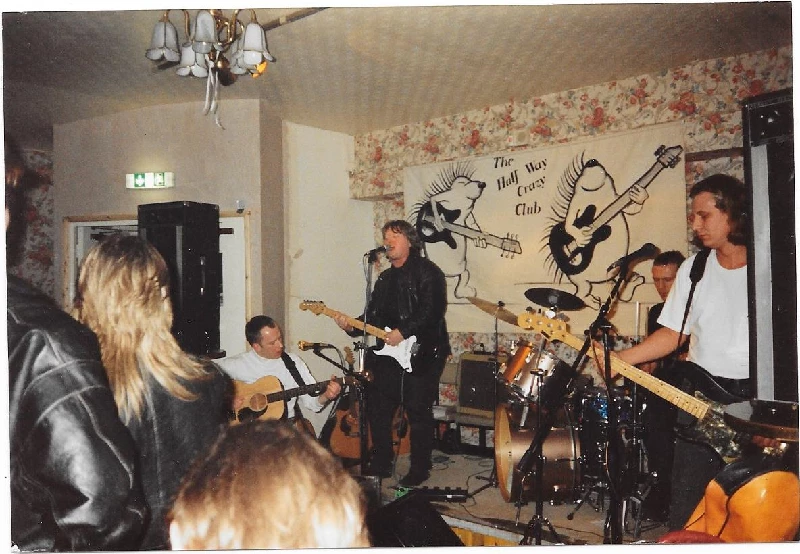
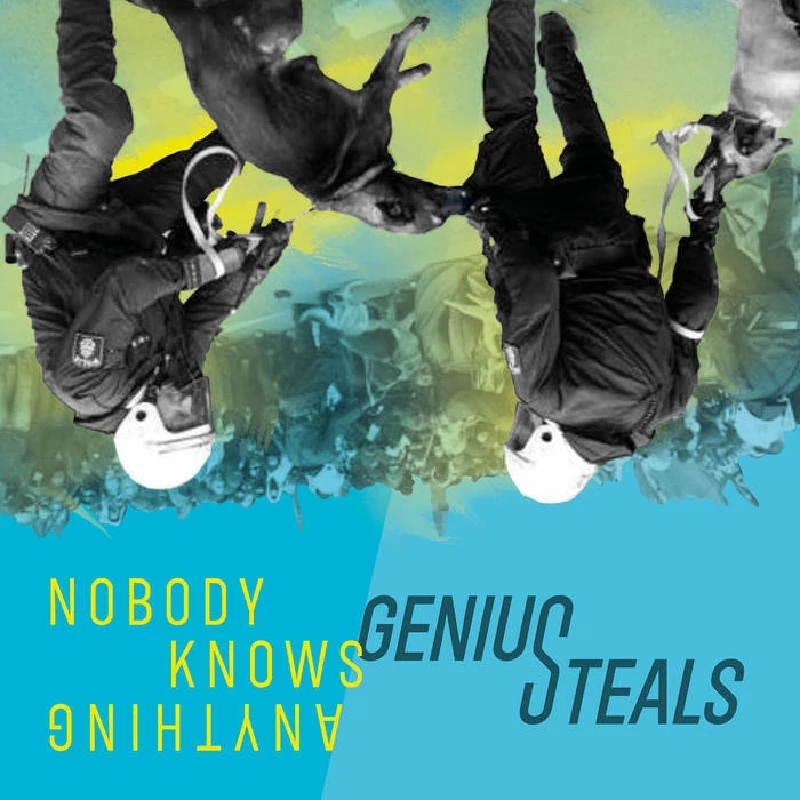
intro
London-based post-punk musician and producer Pat Rowles talks to Adrian Janes about his latest project Genius Steals’ debut album ‘Nobody Knows Anything’, and working with Adrian Borland on his final album, ‘Harmony and Destruction’.
reviews |
|
Nobody Knows Anything (2022) |
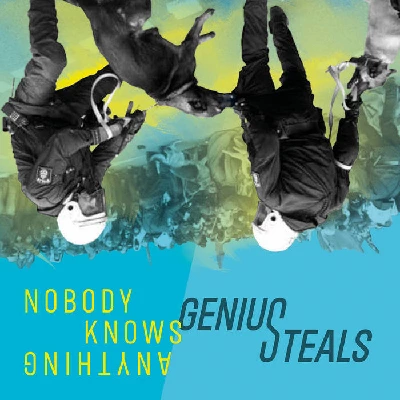
|
| First album in many years from former Adrian Borland sideman Pat Rowles with his new project Genius Steals features pop-rock songs as melodic as they are honest. |
most viewed articles
current edition
Peter Doherty - Blackheath Halls, Blackheath and Palace Halls, Watford, 18/3/2025 and 21/3/2025Armory Show - Interview with Richard Jobson
Liz Mitchell - Interview
Deb Googe and Cara Tivey - Interview
Lauren Mayberry - Photoscapes
Max Bianco and the BlueHearts - Troubadour, London, 29/3/2025
Garfunkel and Garfunkel Jr. - Interview
Maarten Schiethart - Vinyl Stories
Clive Langer - Interview
Sukie Smith - Interview
previous editions
Heavenly - P.U.N.K. Girl EPBoomtown Rats - Ten Songs That Made Me Love....
Trudie Myerscough-Harris - Interview
Doris Brendel - Interview
Beautiful South - Ten Songs That Made Me Love...
Kay Russell - Interview with Kay Russell
Dwina Gibb - Interview
Pulp - Ten Songs That Made Me Love...
Barrie Barlow - Interview
Sound - Interview with Bi Marshall Part 1
most viewed reviews
current edition
Davey Woodward - Mumbo in the JumboNigel Stonier - Wolf Notes
Wings - Venus and Mars
Only Child - Holy Ghosts
Kate Daisy Grant and Nick Pynn - Songs For The Trees
Neil Campbell - The Turnaround
Philip Jeays - Victoria
Darkness - Dreams On Toast
Suzanne Vega - Flying With Angels
Charles Ellsworth - Cosmic Cannon Fodder
Pennyblackmusic Regular Contributors
Adrian Janes
Amanda J. Window
Andrew Twambley
Anthony Dhanendran
Benjamin Howarth
Cila Warncke
Daniel Cressey
Darren Aston
Dastardly
Dave Goodwin
Denzil Watson
Dominic B. Simpson
Eoghan Lyng
Fiona Hutchings
Harry Sherriff
Helen Tipping
Jamie Rowland
John Clarkson
Julie Cruickshank
Kimberly Bright
Lisa Torem
Maarten Schiethart